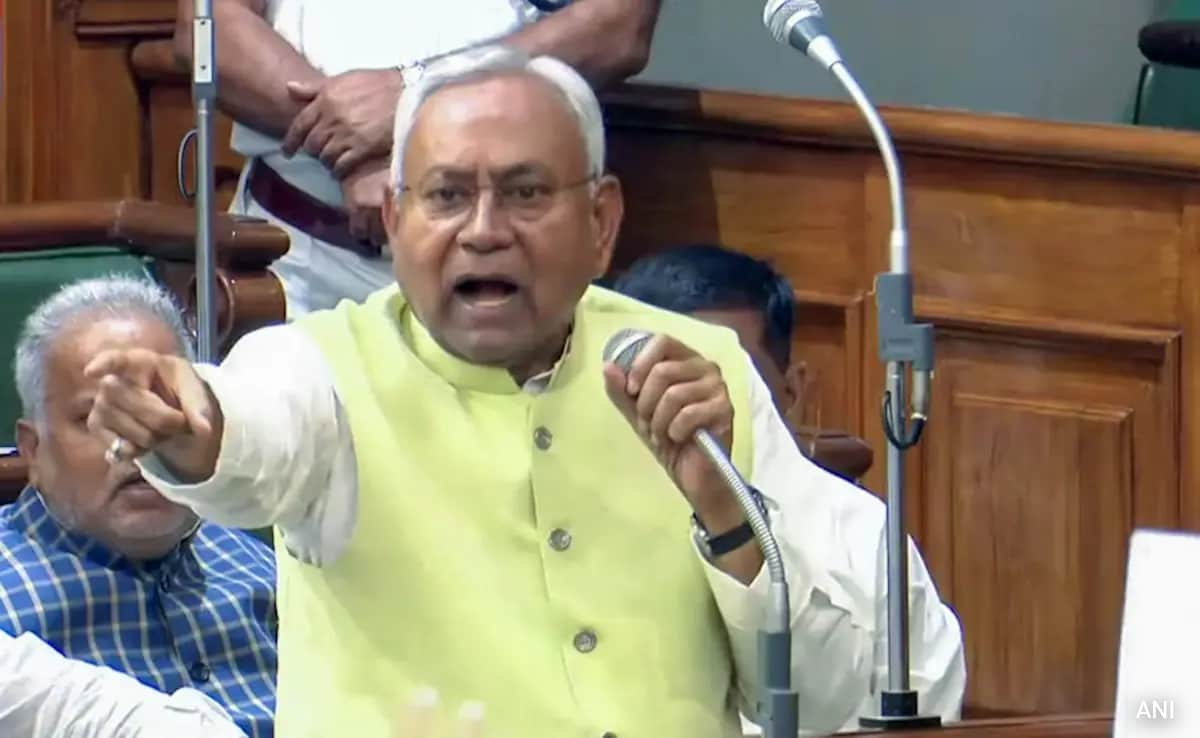
“Everything is about sex, except sex. Sex is about power.”
While it is unclear whether the author and enfant terrible of Victorian-era London, Oscar Wilde, ever made the above statement, psychoanalysts across decades have largely agreed with the idea.
Who would have thought, however, that even talking about sex would engender power play in India’s political stadium where there are more misses than hits?
Bihar Chief Minister Nitish Kumar’s speech on sex education and population has created an entirely unnecessary furore where issues like reproductive health and fertility rate are being overshadowed by the usual balderdash on propriety, culture, and that dangerous thing called honour.
India remains in the unenviable top spot when it comes to maternal and infant mortality rates. Earlier this year, a UN report indicated plateauing of gains made in reducing deaths related to maternal health. The most recent National Family Health Survey (NFHS-5) gives an insight into this depressing trend. Only 10% Indian women can exercise autonomy over their own health. The survey also suggests a disturbing mind-set: 11% women find marital violence acceptable on account of the husband’s sexual demands not being met by the wife.
Those going ballistic on Nitish Kumar giving graphic details of heterosexual intercourse and the pull-out method for birth control – using only euphemisms – in the state assembly are probably being ostriches. When you are in a state of emergency, propriety in language ought not to be the mainstay of any argument. And let us not kid ourselves anyway. All our cuss words revolve around women’s genitalia and crude phrases describing sexual acts, often forced.
It has been proven conclusively that lack of sexual literacy is the main source of several sexual hazards including STDs and unintended pregnancies. In a culture where not only women’s sexual pleasure and desires are marginalised but also their health, thanks to the lack of sexual literacy, understanding the role of language is germane to the formulation of comprehensive health and population control policies.
Death is the bane of respectability. What we cannot define and convey within the paradigms of respectability often kills us. Are we willing to pay a price this hefty for vague concepts like honour and respectability? Harmful cultural practices persist and prevail because we have been successful in glorifying victimhood. Why it should be so, is anybody’s guess.
When Nitish Kumar talked about the pull-out method and emphasised the role of women’s education, he underscored women’s agency over their own bodies. Is this what irked the honour brigade? Clearly, an unhealthy, or even dead, woman is better than an empowered woman for them. Nothing is scarier than an autonomous, sexually autonomous, woman to those who believe in the patriarchal status quo. Any means need to be employed to subjugate, demonise, and otherise her. The tools that come in handy for this purpose are moral and cultural outrage. Women themselves are conned into believing that their lives and choices are second to the socio-cultural mores. It is the same mindset that perpetuated practices like the sati in the past. And continues to lead women astray from the path of self-preservation and prioritisation. It works very well for men.
While honouring a specific local moral order, most women are trapped in a purgatory of sorts. Nitish Kumar’s words, even if he didn’t intend them the way they were received – and for which he eventually extended an unnecessary apology – attempted to free women from the said trap. Employing language that is at once familiar and earthy to drive the basics of sexual health and autonomy, he took a remarkable stride in the space of women’s health and empowerment. Of course, he needs to be shamed for it by trivialising and vulgarising the issue.
The only disturbing aspect about the entire episode is that he felt the need to apologise. It shows that even the best intentions around women’s empowerment need to be couched in the notions of respect and acceptability. The bogey of respectability is the most difficult to get rid of. When it comes to electoral politics, nobody wants to risk anything. This is tragic in all possible ways.
What will it take for a woman to be seen as a human being, and not an inanimate receptacle and repository of honour? What will it take for a woman to be seen as a flesh and blood entity that needs as much attention to the physicality of her existence, away from vagueness? Those who are quoting Nitish Kumar’s iterations as an assault on women’s honour are, essentially, condemning women to a state of ephemeral nothingness. This cannot be allowed.
Palestinian poet Mahmoud Darwish said it better than many.
“And I tire
from the moon’s feminine cycle
and my guitar falls ill
string
by string
I am a woman,
no more
and no less!”
(Nishtha Gautam is a Delhi-based author and academic.)
Disclaimer: These are the personal opinions of the author.




